|
I believed the lie since I was small. I was only 10-years-old when my experience carved a wounding message into my heart: I would not be taken care of by anyone but myself. I was on my own. The lie ensnared me as my dad withered away. He was weak, fragile, and powerless, but it hadn’t always been that way. He had once stood like a great tree: strong, a protector who covered me with his mighty branches. By the time he was diagnosed, he had already begun to fade. I once climbed into his arms for safety, but he could no longer bear the weight of my tiny frame. When he passed, I, however unconsciously, decided that the only way to protect myself from the pain of being left alone was to choose independent solitude. “I’ve got it under control” became my most used phrase. If I refused the support and care offered to me, then I would not risk the pain of losing love when it inevitably let me down. Like a black hole, the lie swallowed me up and trapped me, even into adulthood. The birth of my first child was shadowed by the fear that he might be taken from me. Could I dare to love someone so fragile? Though my marriage is a gift of redemption, I still fought the discomfort of allowing another into the most intimate corners of my heart. I was hiding behind a thick wall of I-can-do-it-all-alone. Satan loves this wound. It is easily infected, and I was at constant risk of being overcome. The years I spent believing the lie are the same years I spent being invited to freedom in Christ by people who love me. Because of their care, I knew who He was and that He was good. I was only unsure that He was good to me. However, the years of isolation and masked strength wore me down. I was being crushed by the weight of loneliness, and I needed to be saved. So I surrendered. Carefully, I relaxed into the arms of Emmanuel. When I laid down my defense, I could see beyond the wall I had built. There was my God, and He was fighting an Enemy who cannot overcome Him. He saw me, invited me to lay my hurt at the Cross, and He cleansed me with Truth: I am the daughter of a Father who never leaves and never fails. I fight each day to remain in that Truth, remembering the ways He has fought for me and trusting that He will show up for me again. The wounding message I received is not gone, but I no longer carry it alone. I will not completely understand the role of the wounds I carry while on this side of Heaven, but I understand this: He knew that I would need to seek after Him for healing, and that when I did I would fall in love with the Healer. When I am tempted to turn away from the Lord out of my wrong belief that I stand alone, I am reminded that He designed me to depend upon His grace. As I entrust my fragile heart to God’s care, I receive His good from life’s bad. He offers better protection than the walls around my heart ever could. Romans 8:28 says, “We know that in all things God works for the good of those who love Him, who have been called according to His purpose.” Dear one, I invite you to surrender to Him. Allow him to fight for you. Get to know Him as you do. Be patient-- with God, and with yourself as He shows you how to accept love and care. The Father can and will produce goodness out of what you give Him. There is freedom in the healing. If you enjoyed this post, we invite you to read Participating in Our Own Redemption and Seeking Healing and Living in Right Relationship.
0 Comments
"For freedom Christ has set us free." -Galatians 5:1 In light of the upcoming celebration of freedom in the United States on the Fourth of July, I was pondering the meaning of freedom as I went to Mass recently. Freedom is not only a word, but a way of life that many Americans hold to be holy and sacred. To begin, what is freedom? What does it mean and entail? The misguided and misinformed definition I once held is that I form my conscience to what I see fit, what I subjectively see to be right and wrong. Along with the culture, I often asked, “What is truth?” This proved to be a heavy burden to bear throughout my life, and I often found myself in state of restlessness and worry. According to the Catechism of the Catholic Church, "’God willed that man should be left in the hand of his own counsel, so that he might of his own accord seek his creator and freely attain his full and blessed perfection by cleaving to him" …Freedom is the power to act or not to act, and so to perform deliberate acts of one's own. Freedom attains perfection in its acts when directed toward God, the sovereign Good” (1743-1744). Furthermore, each of us also has a conscience which, when properly formed and applied, can lead to our ultimate freedom. The Catechism of the Catholic Church 1776 continues, "Deep within his conscience man discovers a law which he has not laid upon himself but which he must obey. Its voice, ever calling him to love and to do what is good and to avoid evil, sounds in his heart at the right moment. . . . For man has in his heart a law inscribed by God.." The conscience is not something that we lay upon ourselves, but something that God inscribes on our very being. Our conscience is not up to interpretation, not up to the current fad, but a gift given by God to His children, in love, to know what is right and wrong—to know how to walk justly and thus live freely. In the Mass I attended, the priest answered my questions about freedom by explaining that freedom comes from a well-formed conscience, from knowing where we are going, whom we are serving, and ultimately from knowing what truth is. A well-formed conscience frees us from the ties of the world and binds us to the truth of Christ, helping us see the world through the lens of truth. The Church beckons the faithful to seek truth, question, find answers, and ultimately find freedom by living in the truth. As Christ himself said, “For this I was born and for this I came into the world, to testify to the truth. Everyone who belongs to the truth listens to my voice.” By conforming our minds and hearts to Christ, we better form and inform our conscience. As daughters and sons of God, this faculty is ours, it is written on our hearts. In this formation, we can reason and determine what is right and wrong, what leads to the path of joy and peace, and who we are. The conscience then frees us to choose the good, and when we fall, to repent and seek Him again. This Fourth of July, let us ask the Lord to show us the path to a well-formed conscience to live a life of freedom. May we ask ourselves where we are forming what we believe, what truths we hold sacred, and if God will enlighten our minds to show us the path of freedom. Let us rejoice knowing that "Where the Spirit of the Lord is, there is freedom” (2 Cor. 17). On one wall of my office, above shelves crammed with books on various theological topics, there are several framed diplomas and certificates like you would find in a doctor or lawyer’s office. I rarely look at that wall for any length of time, but, the other day, I did. At various times in my life as I was working on degrees and certificates to gain needed credentials or accomplish my work more effectively, attaining them was very important to me. Now, as I look at the wall, I am not very much impressed by the framed paper that is there. Of course, the degrees and such do permit me to teach and provide credibility for some when I present or write. But people matter more. Much of my time today is spent less with books and papers and more with people. In many ways, I am living out what my father challenged me to do when I was in my twenties.
One Sunday night many years ago (I called each week on Sunday at 7 p.m.), I was talking with my father and whining that I might not get the final grade that I hoped in a course that semester. It was very important to me to have good grades, as if my worth depended on it. He listened very patiently and then said, “Frank, when someone knocks on the rectory door looking to talk with a priest, they will not care what grade you got. They will care only that you are willing to listen to them and be there for them.” Of course, he was very right. My father, who was a successful business person without any degrees, taught me what is at the heart of faith and living faith – God and people. The divine aspects of faith are always mediated through people as individuals and as groups – their needs, their struggles, their concerns, their pain, their suffering, their joy, their love, their sorrow. Faith is about people and their lives, their interaction with God, and their ultimate destiny. The teachings and customs of faith are not ends in themselves. Instead, they should lead to greater freedom and harmony among human beings. Yes, the twisting of teachings and customs of faith into something else has always happened over the millennia and continues to be a challenging reality. But that is simply using them for self-centered reasons, especially when used to justify hate and oppression. Faith ultimately is about freedom – the freedom to be fully human in union with God. It is a freedom given by God’s grace. Faith rooted in freedom moves outward to people and their needs. It is not focused on self, but on God and other people. As the Catechism of the Catholic Church teaches in number 1742: “The grace of Christ is not in the slightest way a rival of our freedom when this freedom accords with the sense of the true and the good that God has put in the human heart. On the contrary, as Christian experience attests especially in prayer, the more docile we are to the promptings of grace, the more we grow in inner freedom and confidence during trials, such as those we face in the pressures and constraints of the outer world. By the working of grace the Holy Spirit educates us in spiritual freedom in order to make us free collaborators in his work in the Church and in the world: Almighty and merciful God, in your goodness take away from us all that is harmful, so that, made ready both in mind and body, we may freely accomplish your will.” After 26 years of living out my vocation to the priesthood as a Pallottine, I can say with confidence again how right my father was. My prayer is that I have accompanied those who needed a listening ear and walked alongside them on their journey of faith, and that I will always continue to do so. May we as Christians remember to put people over paper and strive to live out our faith in true freedom. 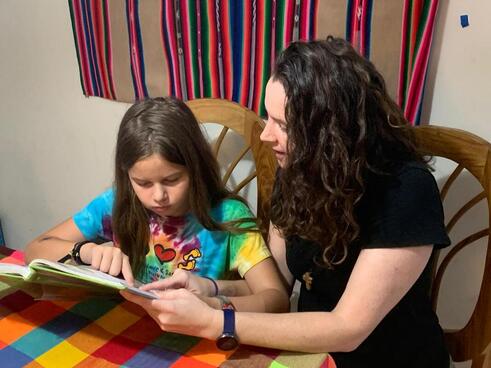 Like most of you, my family and I have been in quarantine. When El Salvador’s President Nayib Bukele first announced the prospect of a quarantine—before there were any confirmed cases here—our family decided that it would be best to practice physical distancing right away. The public hospital system here in El Salvador is precarious under normal circumstances, and once the virus is at its peak, it won’t matter how much money you have. If you require a hospital bed, you will go where there is one available. The national convention center in San Salvador is being converted into a 3,000-bed hospital, with 1,000 of those beds designated for intensive-care patients. Our best bet for surviving this pandemic is to stay home and find ways to continue our relationships with the people at our ministries without being physically present—a challenge, but also an opportunity. My ministry, the women’s cooperative ACOMUJERZA, has come to a screeching halt. We were in the middle of a huge order for the Education Ministry of El Salvador. We are sewing over 3,000 school uniforms as part of a government-funded program. This order is the biggest we have ever been contracted to make, and frankly before this pandemic our members were scrambling to figure out how we were going to sew more than 3,000 pieces in 60 days and how we were going to pay everyone to make all of those uniforms. ACOMUJERZA applied for a loan from a non-governmental organization that has helped us in the past. We received the preliminary approval for the loan, but with all of the economic uncertainty, the NGO froze all lending for the foreseeable future. ACOMUJERZA members packed up all of the finished uniforms and prepared the building for the beginning of a nationwide mandatory quarantine on Saturday, March 21. There is so much uncertainty, and yet when I talk to each of our members, they remain positive. The government has promised a government grant of $300 a month to unsalaried workers—those most in need, which applies to some of our members—but that money has not been distributed yet. With 12 days into our quarantine, I worry about how my friends at the cooperative are surviving and if they have enough food to eat. I spoke with my friend Juanita from the women’s cooperative the other day. She told me that, when she first went home after the president declared quarantine, all she wanted to do was cry. She felt depressed and sad to not be able to go to work and she felt a loss of her freedom. But after a few days, she pulled herself out of her sadness, and she told me about all of the things that she and her daughter decided to do during the mandatory quarantine. They already painted a few rooms in their house, got rid of old clothes, sewed masks and spent time tending to her garden. “Now the time just seems to be going by quickly, thanks be to God.” she said to me during our last phone call. We chatted a bit longer and before getting off the phone, she reminded me that “we are all called to do our part and, for now, our part is staying at home.” While checking over my daughter Evey’s daily journal assignment for school, I realized just how I am doing my part. She was assigned to write about what she liked and didn’t like about being homeschooled during the quarantine. She wrote, “I like homeschooling because it is fun and I get to do more fun stuff with my mom.” Maybe “doing my part” is keeping spirits up among the members of the cooperative, sharing my gifts and talents with Maryknoll Lay Missioners, spending more time with my children and modeling for them how to adjust to an ever-changing reality This blog post was re-published with permission from Maryknoll Lay Missioners. To learn more about their work and mission, please click here. To learn about other faith-based service opportunities, please click here. "Humanity will never find peace until it turns with trust to Divine Mercy" (Diary, p. 132). Here we are, with Divine Mercy Sunday this weekend, and instead of being in our churches with our communities, we are at home figuring out how to make this day still sacred. What do we do? Have we entered into the joy of this holy Easter season in the Church, or are have we fallen into despair that we remain in this time of “shelter in place”? Maybe it’s both? For me, I was sort of giving God an ultimatum during the Lenten season: “Lord, we will endure Lent separated from our communities, but shouldn’t you show your power and end all of this when Easter comes?” I have truly wrestled with embracing our new normal at home and fully entering into the joy of the Resurrection—the joy that comes from knowing I have been freed from the bondage of sin and death although it’s completely undeserved. We know this physical separation during the coronavirus pandemic is a way to love our fellow man, and we embrace it for the sake of love. Yet still, have our hearts embraced the message of Divine Mercy? When the message of Divine Mercy was given to Sister Faustina (and then to the world), the world was in a terribly dark place: war, hatred, and brokenness abounded. Jesus knew the world needed hope, a reminder of the infinite love He has for humanity, and to trust in His Mercy. And now, here we find ourselves in a different kind of darkness—a darkness of disease, isolation, blame, and fear. And still in this time and in this place in which we find ourselves separated from our communities, away from our physical Churches, and isolated in our homes, the Lord has gifted us the beautiful message of Divine Mercy. As Bishop Robert Barron said, “Into all the dark corners of our human experience, God’s mercy has come.” The message of Divine Mercy reminds us that no matter how dark it is, or how deep our sin runs, Jesus’ great love for us is greater still! He has defeated sin and DEATH. What more can we fear? He desires to be with us, for us to embrace Love itself. Divine Mercy is summarized by Jesus’ first words to His disciples after returning from the dead: “Peace be with you” (John 20: 19). After greeting his disciples this way, he says it again: “Peace be with you” (John 20: 21). The disciples, like us, needed to embrace the message Jesus brought, a command of peace and trust. When we trust, surrendering our hearts and lives to the one we are meant for, true peace reigns. Peace that cannot be stolen by disease or fear but that is rooted in our identity as beloved sons and daughters of the one who can conquer all things, even death. As we prepare to celebrate the Feast of Divine Mercy, may we surrender ourselves to Jesus, embracing the message of Divine Mercy— that His love on the cross, His resurrection from the dead, His love for me and for you can truly reign over our world in a time of uncomfortable uncertainty. Let us shout with joy, “Jesus we trust in you!” and allow His peace to rule in our hearts once more. Founded in the 17th Century, Saint Patrick’s Day is both a commemoration of Ireland’s patron saint as well as a popular celebration of Irish culture enjoyed worldwide by the Irish and the Irish-at-heart. Folks wear green, host parties and parades, and enjoy Irish food, drink, and dancing. While the holiday holds special significance for Irish-Americans (who represent the largest chunk of the global Irish diaspora), Saint Patrick’s Day is a feast that all are invited to share in. The lasting, inclusive nature of this holiday has much to do with the Irish people, their fight for freedom, and their collective experience as immigrants in America. Fittingly, Ireland’s patron saint was himself an immigrant to Ireland from his native Roman-British shores. We celebrate Patrick today because he successfully spread Christianity across 5th century Ireland – a mission that forever altered the destiny of the Irish people. Patrick is beloved for preaching in the Gaelic language, for using natural imagery to illustrate Gospel truths, and for driving away superstitious pagan beliefs. Like many early saints, Patrick’s story is a mixture of legend and fact. However, beyond the colorful lore stands a real person whose deeds and words continue to inspire and affect us. To help you better know the man behind the myth, here are ten fascinating facts about Ireland’s very first bishop: 1. Patrick was not born Irish. While he spent the majority of his life living among and ministering to the Irish people, Patrick was a Roman Briton by birth. His exact birthdate and birthplace are uncertain, but it is believed he was born in Scotland, England, or in northern Wales around 386 A.D. 2. Patrick first came to Ireland as the captive of Irish pirates. Patrick was a teenager when he and “a large number of his father’s slaves” were stolen and sold into slavery by Irish raiders. This began a six-year stay of captivity in Ireland, during which Patrick’s spiritual conversion began while he labored as a shepherd. 3. Patrick escaped slavery with help from a dream. After years of suffering and intense prayer, a voice in his dream said, “You have fasted well. Very soon you will return to your native country” [Confessio, 17]. The voice then told him where he would find a ship, some two hundred miles away, to carry him home to Britain and his family. 4. Patrick spent time studying for the priesthood in France. After his return to the Britons, Patrick travelled and continued his studies in Christianity at Auxere, France (formerly Gaul), possibly visiting Marmoutier Abbey in Tours, before being ordained. 5. Patrick received a vision calling him back to Ireland. After his parents begged him to cease his adventures, Patrick received another dream in which a man approached him carrying letters from the Irish people and imploring his return. Fr. Jack Wintz, OFM says, “What is interesting about this dream… is that it came not as a directive from God, but as a plea from the Irish…. Patrick wasn't commanded to bring civilization or salvation to the heathens. He was invited to live among them as Christ's witness.” 6. Patrick’s Irish mission was unpopular. Few of Patrick’s brother clergy shared his sympathy for the Irish people, who were viewed as barbaric and hostile. Patrick’s superiors disapproved of his calling; his Confessio (first-person account of his life) was written partially as a defense and a response to critics of his mission. 7. Patrick wasn’t the first Christian missionary to Ireland. Fr. Jack explains, “There were some Irish Christians, mostly on the eastern and southeastern coast. Many of these were probably British slaves who had been taken into captivity by the Irish. There is a record of a Bishop Palladius being sent to Ireland before Patrick. But the mission of Patrick was unique.” 8. Patrick taught the Gospel through Celtic language and symbolism. Patrick preached effectively in the Gaelic tongue, and he employed pre-existing pagan symbols in transmitting the faith. While Patrick’s use of the three-leaf clover to illustrate the Trinity was likely a later addition to his legend, Patrick’s Confessio specifically details his distinctions between Irish pagan sun worship and Christian worship – including Old Latin wordplay of the words sun and Son. Irish priest Fr. Liam Lawton notes, “the Celtic cross we know today was basically a cross superimposed on the sun… Patrick convert[ed] sun worship to Son worship.” 9. Patrick drove out superstitious practices, rather than snakes. Patrick is said to have driven out “all the snakes of Ireland” into the sea. While the National Museum of Ireland’s fossil collections and records provide no evidence for snake species ever having existed in Ireland, Patrick likely did the Irish a greater service through his concrete and traceable efforts to build churches and ordain Irish priests—efforts which helped to drive out the druids who had formerly dominated Irish spiritual affairs. 10. Patrick wasn’t always associated with the color green. Jumping forward in time – Saint Patrick’s Day celebrations first bloomed in America in the early 1700s, where the Irish diaspora developed them into the holiday we recognize today. However, says NYU professor Marion Casey, “It wasn’t until 1798, the year of the Irish Rebellion, that the color green became officially associated with the day.” Before then, “The color associated with St. Patrick was blue, as it was featured both in the royal court and on ancient Irish flags. But as the British wore red, the Irish chose to wear green, and they sang the song ‘The Wearing of the Green’ during the rebellion, cementing the color’s relevance in Irish history.” Wishing you a blessed and fun Saint Patrick’s Day – Sláinte (Health)! From Amoris Laetitia to Christus Vivit, one of Pope Francis’s greatest gifts to the Church has been his emphasis on spiritual accompaniment. Pope Francis has exhorted the Church to make use of accompaniment in response to sensitive pastoral situations, ailing youth ministries, and even to a humanity suffering from isolation and anonymity. Accompaniment, to Pope Francis, is a way of being in intentional relationship with another in order to lead them “ever closer to God” (EG, 170). In addition to being oriented towards leading others into closeness and intimacy with God, Pope Francis also describes accompaniment as healing, liberating, gradual, encouraging growth, and fostering freedom. Perhaps the most beautiful words that Pope Francis uses to shape the Church’s understanding and practice of accompaniment is an “art…which teaches us to remove our sandals before the sacred ground of the other” (EG, 169). What does it truly mean to “remove our sandals before the sacred ground of the other” in terms of accompaniment? How does this shape the apostolate of a mentor? A key to understanding this meaning lies in the scriptural story found in: Exodus 3—the story of Moses meeting God in the burning bush. In this story, Moses beholds an awe-inspiring sight, a bush that is on fire but unconsumed by it. He then turns to look more closely at the bush, from which comes a theophany, or an instance of God revealing God’s self to a human person. God calls out to Moses by name, to which Moses responds, “Here I am!” Before Moses can come any closer to the bush and consider it further, God exclaims to him: “Do not come near! Remove your sandals from your feet, for the place where you stand is holy ground. I am the God of your father, he continued, the God of Abraham, the God of Isaac, and the God of Jacob. Moses hid his face, for he was afraid to look at God” (Exodus 3:5-6). What are we to make of this scripture passage, especially in light of Pope Francis’s understanding of accompaniment? Firstly, the Exodus reference exhorts us to view the other we are accompanying not only with respect, but with reverence. As we begin to accompany others, we must look upon them not as receptacles to be filled with knowledge, passive recipients of teaching, or soft clay to be modeled into our own images and likeness as ministers. Instead, in accompaniment, we are called to witness to another’s belovedness as a child of God. When we enter into a relationship of accompaniment with another, we must have a posture of humility and honor before those we accompany. This posture of reverence is fundamental to a mentor’s practice of accompaniment, rendering them better able to foster a relationship that is truly transformative. Secondly, the theophany in the Exodus story gives us another clue into understanding more fully the duties of accompaniment. We must respect the accompanying relationship as a legitimate place where God reveals God’s self to both mentor and the one accompanied. Accompaniment takes seriously the fact that human experience is a space where God reveals God’s self; in other words, accompaniment affirms that the life experience of the one accompanied is “a locus for the manifestation and realization of salvation, where God consistently with the pedagogy of the Incarnation, reaches man within his grace and saves him” (General Directory for Catechesis, #152c). In a relationship of accompaniment where a mentor is asked to “remove their sandals before the sacred ground of the other,” mentors must help the ones they accompany interpret their experiences in light of scripture, discern more fully the action of God in their lives, and wait with full anticipation to respond to God’s voice in the midst of their daily life. Finally, this scriptural passage exhorts mentors to maintain and cherish the mystery of the one they accompany. As Moses hides his face before God present in the burning bush, so too must mentors respect with holy fear that which is mystery in the life of those they accompany. Though we might come to know those who we accompany well or even develop a deep bond with them, they never belong to us completely, but are instead placed in our path for a period of time so that we might help them foster connection and intimacy with God. Though we might have plans, hopes, or desires for those we accompany, we must always ensure that we respect the work of the Holy Spirit in the relationship of accompaniment. Accompaniment cannot be reduced to a neat list of objectives or learning outcomes; rather, it is a “pedagogy which will introduce people step by step to the full appropriation of the mystery” (EG, 171). True accompaniment wrestles with the intricacies of human life, cautioning mentors that “realize that each person’s situation before God and their life in grace are mysteries which no one can fully know from without” (EG, 172). As mentors, we cannot assume that we are the ones that ultimately decide how or why the Spirit moves the way it does in the life of those we accompany. Instead, we must continually reflect on how the person before us in the relationship of accompaniment is being formed not by us, but by the Holy Spirit. Accompaniment, when contemplated as an “art” that “teaches us to remove our sandals before the sacred ground of the other,” calls us to have a posture of reverence before the ones we accompany, regard their human experiences as privileged places for God to reveal God’s self, and maintain a sense of mystery in the relationship of accompaniment. How are we being called to remove our sandals before others in our life and ministry? How might removing our sandals before those we accompany allow us to travel more readily on the journey towards growth in holiness and transformation in the Person of Christ?
It is fitting that as I write this blog in anticipation for National Vocation Awareness Week, the liturgical calendar has us moving through Paul’s letter to the Romans. In this letter, we find Paul emphasizing that we are now entering into a ‘new exodus.’ Just as Israel was liberated from Egyptian slavery, we are now liberated from the slavery of sin. The sacraments of Baptism and the Eucharist are the means by which Catholic Christian believers are joined to the new Exodus. Baptism is prefigured by the Israelites’ passage through the Red Sea, and the Eucharist is prefigured by the manna and the water from the rock in the desert. As we know well, the story does not end at our baptism. Rather, it is there that the story begins. Israel, having escaped from Egyptian slavery, quickly discovered that serving the Lord was even more demanding on the will than serving Pharaoh. In order to reach the Promised Land, the people of Israel had to take a path through a wilderness of trials and temptations. This path required a valiant conquest of all the obstacles of sin that stood in their way. In fact, the difficulty of the journey had some yearning for the days when they were slaves in Egypt. As children of the ‘new exodus’, our vocation in life is to travel through the wilderness of human life. Our exodus differs from the old in some ways, though. Our proclamation of the freedom found in Christ occurs while we travel. Our baptismal vocation calls us to ongoing sanctification, but it also calls us to witness this great exodus from sin and the new freedom in and won by Jesus Christ. We often desire the commitment to this ‘new exodus’ after seeing the commitment of others. This is a point that Fr. Luigi Giussani makes in his book titled, Is it Possible to Live this Way?. Fr. Giussani stresses the necessity of faith by which one encounters Christ indirectly through the witness of another. This witness tugs at our hearts to the point where we have no choice but to respond. Witnesses are therefore crucial to our discovery of this vocation - a vocation to partake in the new exodus. In my own life, my first example of such witnesses began with my parents. They not only gave me life, but they witnessed the faith by making the home a domestic church. Their marriage provided a template for me in my own vocation. They helped me see that the expression of freedom from the tyranny of selfishness comes through a spousal love. This spousal love is not exclusively expressed through the sacrament of matrimony, but it is also expressed through the sacrament of holy orders. As a diocesan priest, my local church in Harrisburg, particularly St. Francis Xavier in Gettysburg, is in a sense my spouse. I could not have such an understanding were it not for the witness of my parents. In addition, every seminarian and newly ordained priest can think of at least one other priest who first witnessed the presence of Christ to them through their own ministerial priesthood. In my case, I watched and learned first from my childhood pastor in New Hampshire, Fr. Marc Montminy. He was, and continues to be, a witness of Jesus Christ and a faithful spouse of the Church. Other priests who have taken on a similar role in my life are Fr. Frank Donio, S.A.C. (the Director of the Catholic Apostolate Center), priests of the Diocese of Harrisburg, faculty priests at Mount St. Mary’s Seminary, and priests elsewhere. As a priest, I seek (despite shortcomings and failures) to always be attentive to this desire - a desire to reach the promised land of eternal life through this new exodus. This is only possible because I have encountered people who not only accompanied me in discovering this desire, but who also witnessed it. This is, in essence, what it means to be a ‘humana viator’ (a wayfaring pilgrim). This is what it means to be an apostle. This is what it means to imitate Jesus Christ, the apostle of the Father. This is what it means to fulfill our baptismal vocation. During this National Vocation Awareness Week, may we be more attentive to this desire. May we recommit ourselves to this new exodus, which we have already begun through our baptism. May we also maintain and express our gratitude for those who have (and continue to) accompany us as witnesses. For more resources on Accompaniment, please click here. For more resources on Vocational Discernment, please click here. For Americans, the annual observance of the Fourth of July celebrates the independence of the United States. Our national story is made up of the varied lives and unique experiences of countless peoples who nonetheless share in seeking “life, liberty, and the pursuit of happiness.” Each of these people is following his or her own American Dream, the achievement of which requires hard work, fortitude, and faith. As we celebrate and reflect upon our personal freedoms— long fought for and subsequently defended— we also acknowledge those peoples whose rights are continually imperiled or at risk of being curtailed by injustice. The United States by no means has a spotless record in establishing civil rights, but those efforts have raised up incredible heroes who sought to make the American Dream more accessible peacefully and justly. As Catholics, we especially thank God for His blessings on this land and for the preservation of our rights to bear witness to Him publicly as Americans.
Thanks to the efforts of French and Spanish missionaries in the 16th and 17th centuries, Catholicism began to take root among the indigenous peoples of what would become the United States. As the fledgling country wouldn’t have an installed bishop until 1789, the American Church continued to grow during the first half of the 19th century thanks to the influx of Irish and German immigrants seeking the religious toleration which was becoming less and less abundant in Europe. Protestants were critical of these arrivals, declaring it was not possible to be a good American and Catholic at the same time (partly due to false beliefs spread about allegiance to the Roman pope). Thanks to the determination of these immigrants, and the grace of the Holy Spirit, by 1850 Roman Catholicism was the largest denomination in the United States. Despite the political and cultural persecution American Catholics experienced, the ministries and loving charity of certain clergy and religious ensured that the needs of their fellow citizens were met. Figures like Mother Cabrini and Mother Seton founded religious communities that took care of the poor whom society all too often ignored. Mothers Drexel and Duchesne cared for Native Americans (as did Kateri Tekakwitha), African Americans, and women as they evangelized with the missionary spirit. Fr. Michael McGivney began a member-benefit society (which would become the Knights of Columbus) to care for the widows and families of Catholic male breadwinners who lost their lives. Isolated from the public square, the Catholics of this country nevertheless found a niche caring for other outcasts through a public witness that expressed faith as the catalyst for action. Doing so forced many observers to cease their suspicions and prejudices and helped normalize Catholicism in America. The examples of faithful religious continued to inspire Catholics in all walks of life to live out their faith freely. In recognition of their faithful witness of the Gospel, many of these brave citizens are now hailed as saints for universal veneration in the Church. Today, secularism and the misrepresentation of civil rights threaten the very foundation of the society which Catholics have indisputably helped shape. Legal challenges are filed against religious symbols, schools, churches, and charities, supposedly for discriminatory actions or the preservation of the separation of church and state. American Catholics are often torn between publicly defending these institutions and their work or avoiding antagonization for speaking out. Nonetheless, the Church continues to meet the needs of the poor and the outcast in the same spirit of welcome the poet Emma Lazarus immortalized in the words of “The New Colossus,” which hangs in the pedestal of the Statue of Liberty: “Keep, ancient lands, your storied pomp!” cries she With silent lips. “Give me your tired, your poor, Your huddled masses yearning to breathe free, The wretched refuse of your teeming shore. Send these, the homeless, tempest-tost to me, I lift my lamp beside the golden door!” As Americans, we thank God for the gift of religious liberty and for those who continuously defend it. As Catholics, we pray for our leaders to be guided by the Holy Spirit to pursue justice and for those abroad who are still struggling for the basic rights and freedoms we enjoy. There is no shortage of opportunities around us to live and act as the saints before us. The American story continues with each of us; perhaps its future chapters will tell of the great love and commitment of countless citizens who welcomed the refugee, defended the unborn, cared for the disabled, accompanied the lonely and the imprisoned, fed the hungry, clothed the naked, promoted charity, and honored the dead. We have much to celebrate on July Fourth; may God always guide our nation in the ways of liberty and justice for all. “Then Jesus said to His disciples, ‘If anyone wishes to come after Me, he must deny himself, and take up his cross and follow Me. For whoever wishes to save his life will lose it; but whoever loses his life for My sake will find it’” (Matthew 16:25). For about three months, culminating on Easter Sunday, I took part in a spiritual program for Catholic men focused on prayer, ascetism, and fraternity. During this program, men ‘unplug’ from the world, deny themselves, and live in a specifically intentional way for the Kingdom of God. This journey requires men to participate in fraternity with other men, read Scripture and reflections each day, spend at least 30 minutes in prayer with the Blessed Sacrament, and then other things, including: no social media, no computer or phone if not for work or other mandatory tasks like paying bills, taking a cold shower every morning, no sweets, no snacking between meals, no alcohol, getting at least 7 hours of sleep each night, no watching sports, and fasting and abstaining from meat every Wednesday and Friday. This is a journey through the Book of Exodus alongside Moses and the Israelites as they escape slavery in Egypt and learn how to live in true freedom in the Promised Land. The Book of Exodus is a brilliant metaphor for the modern man, called to a freedom rooted in the ability to choose the good for the sake of God and His Kingdom as opposed to a having a ‘false freedom’ and being a slave to desires and passions. Receiving screen time reports on my iPhone each week made me realize how much of a slave I am to my cell phone – to social media, to sports, to instant gratification. I desired to free myself from my phone in a radical way, which this program helped me achieve. This is just one example of how this journey invited me to restructure my day and rid myself of lazy habits. This journey was hard: the first few weeks were hard; the last few weeks were hard. I wasn’t perfect at maintaining all of the disciplines of the program. I can recall starting the cold water for the shower in the morning and letting it run for 5 minutes trying to pump myself up to jump in. This happened many times. But after 3 or 4 weeks, I was jumping right in. The old adage is true: First we make our habits, then our habits make us. The more we exercise true freedom – denying ourselves and making choices that counter our desire for comfort – the easier it is to live in freedom. Feeling much more liberated, I still do not have any social media apps on my phone, I take a cold shower from time to time, and prayer time is a staple of my daily routine. Making these types of continued choices is not easy, and that is why participating in community with the Body of Christ – much like the disciples did— is essential to continued spiritual growth. Though each choice and discipline of this program is deeply personal, a community of like-minded men working through the same disciplines in their own right was a crucial element of this process. This community allowed me to give and receive motivation and encouragement and ensured that the disciplines were being completed in a physically and spiritually healthy way. This is why the Church, in her wisdom, has encouraged the formal development of many religious communities – such as the Dominicans, Franciscans, and Pallottines. I believe this is also why the Church today is stressing Collaboration and Co-Responsibility in ministry. The journey to heaven is not one that should be walked alone. I would encourage you, in whatever spiritual journey you undertake for God and his Kingdom, to do so in community. Question for Reflection: Have you ever participated in a spiritual program, conference, or retreat that had a positive impact on your faith? Every year, on the Fourth Sunday of Easter, we hear a Gospel passage about Jesus, the Good Shepherd. On this day, the Church also invites us to prayer and reflection on vocations as part of the World Day of Prayer for Vocations. In his 2019 Message for this day, Pope Francis offers a significant consideration for all those involved in Church ministries:
“Dear friends, it is not always easy to discern our vocation and to steer our life in the right direction. For this reason, there needs to be a renewed commitment on the part of the whole Church – priests, religious, pastoral workers and educators – to provide young people in particular with opportunities for listening and discernment. There is a need for a youth ministry and a vocational promotion that can open the way to discovering God’s plan, above all through prayer, meditation on God’s word, eucharistic adoration and spiritual accompaniment.” The Synod on Young People, the Faith, and Vocational Discernment reflected on this theme which resulted in both the Final Document of the Synod and in the Post-Synodal Apostolic Exhortation, Christus Vivit, offering important insights that can help not only those in Church ministries, but all to accompany young people in their vocational discernment and then to live that vocation well once they have come to know where Christ is calling them. St. Vincent Pallotti, whose 201st anniversary of ordination to the priesthood is today, understood well how to accompany young people in their vocational discernment. He was a sought-after spiritual director and confessor who went to all, especially young people, where they were. He provided many opportunities for both youth and young adults – lay (single and married), religious, seminarians, and priests – to deepen their encounter with Christ, grow in holiness, and live their call from him as an apostle. Pallotti’s witness of holiness of life and example of faith, particularly though his works of charity, inspired all who knew him to live more fully for Christ. Today, his approach offers us an example of what Pope Francis describes in Christus Vivit, n. 242: “Young people need to have their freedom respected, yet they also need to be accompanied.” May the Charity of Christ urge us on! For more resources on Vocational Discernment, please click here. Two forces have particularly influenced my life. The first is my Catholic faith – given by my parents and nurtured by others as I grew. The second is my adulthood experience with obsessive-compulsive disorder (OCD). In wrestling with both of these forces (at times feeling like Jacob, who wrestled with God), I accidentally discovered a saint whose experiences reflected my own. Saint Dymphna lived in Ireland during the seventh century, after the time of Saint Patrick, Saint Brigid, and Saint Columba. Christianity was practiced by many – including Dymphna’s mother, who had her daughter secretly baptized. Dymphna’s father was a pagan king named Damon. Dymphna’s mother died when Dymphna was just 15 – throwing her father into a terrible grief. Damon’s counselors advised him to remarry, and though they searched for another wife, they found none. They then advised Damon to marry his daughter, who reflected her mother’s great beauty. Initially repelled, Damon eventually agreed and proposed to his daughter. Under the guidance of her confessor priest, Saint Gerebran, Dymphna rejected her father’s proposal, and fled Ireland for Belgium. Tradition states that Dymphna then built a hospice in Geel for the sick and the poor, where she remained for some time. Soon, Damon and his men traced Dymphna’s journey, and ascertained her whereabouts due to Dymphna’s use of foreign currency. Confronted by the mad king, Saint Gerebran rebuked his behavior, and Damon had his men kill the priest. Still hoping to win his daughter, Damon then pleaded kindly, offering wealth, prestige, and honor. Dymphna, steadfast in her vow of chastity, rejected the offer – and by her own father’s sword was beheaded. Soon after Dymphna’s martyrdom, several “lunatics” spent the night in the countryside where Dymphna died, and woke up in the morning healed. This miraculous place became known throughout Europe: a church was eventually built in the 1300s, with a sanctuary expansion built to accommodate pilgrims seeking mental relief. Townspeople themselves even began taking them into their homes, a tradition that continues to this day. Saint Dymphna entered my own life in a chance way seven years ago, near the onset of my OCD symptoms – which involved uncontrollable obsessions and time-consuming “checking” behaviors. Around this time, I discovered in my bedroom a prayer coin invoking Saint Dymphna. I do not recall where this coin came from – and I certainly had never heard of Dymphna before. But the prayer on the back captured me: “Oh St. Dymphna, Patroness of nervous and mental illnesses, grant that, through prayer, I may be pure in mind and soul.” Fascinated by her story and her Irish identity, I began to read, learn, and ask in prayer for her help. This relationship deepened and developed into my own pilgrimage to St. Dymphna’s church in Geel – which was closed when I reached Belgium! Nevertheless, she has continued to inspire my journey from OCD sufferer to OCD advocate, and I am more convinced than ever that she is a great intercessor and resource in our current Age of Anxiety. Below are some brief meditations on Dymphna’s continued influence on my life: 1. Dymphna kept faith even in grief. We all know how grief challenges our faith. Not only did Dymphna lose her mother, but she also had to tread the impossible tightrope of consoling her father while recognizing that his sickness was warping him. This must have torn at Dymphna’s heart. Yet even amidst suffering, she did not stop hoping in God’s providence. In my own life, losing my brother six years ago in an accident severely challenged my faith in God. During this time, I believe Saint Dymphna’s help guided me back to a place of trust and hope. 2. Dymphna chose the path of unknowing and vulnerability. By fleeing to Geel, Dymphna took a major-league risk and rejected the familiarity of her native land. Yes, she was momentarily safe from the king – but incredibly vulnerable as a foreigner and refugee. In many ways, staying home and appeasing her father would have been the “safe” choice. OCD constantly tempts me with gaining “safety” at the cost of doing ridiculous compulsions. While it’s terrifying to reject what OCD wants me to do (“Think hard enough and you’ll have peace!”), I have to respond by saying, “I’m willing to be anxious and unknowing, so I can live a real life.” That Dymphna, Patroness of mental illness, was beheaded, indicates to me that I must abandon relying on my brain, and embrace God and that which I cannot see or “figure out.” 3. Dymphna perfected her own authority and freedom to choose. In standing up to Damon, Dymphna inspires all of us who face temptation and all who face oppression from those who misuse their power. Not only did Dymphna preserve her vows of chastity, but she also avoided another, potentially graver misstep – the acceptance of a false crown, that is, her mother’s rightful crown. The choice to be independent is terrifying. The story of Dymphna, however, shows true independence is possible, through faith in God who desires our freedom from sin and from oppression. With God’s help we may learn to abandon the perceived “safety” of acquiescing to the soul-stealing machinations of tyrants (even the tyrants in your own mind), at which time the opportunity for freedom, originality, generosity, charity, and creativity arises. Questions for Reflection: What false crowns have you been offered in your life? What powerful proposals have been extended at the cost of your authority and freedom to choose? Just before Advent, the Holy Father was leading his usual general audience when a six-year-old autistic boy, Wenzel, escaped from his family and wandered towards the pope. Blissfully unaware of the attention he was now attracting, young Wenzel scurried about Pope Francis and interacted with his surroundings—including a Pontifical Swiss Guard standing at attention nearby. After the boy’s mother explained the situation to the Holy Father, Pope Francis encouraged her to let him continue to play and then offered a beautiful teachable moment to the thousands gathered in the Paul VI audience hall:
This boy can’t talk, he is mute but he knows how to communicate. He knows how to express himself. He has something that made me think: He is free. An undisciplined freedom… but he is free. It made me think, “am I also free like that before God?” When Jesus says that we have to become like children He tells us that we have to have the freedom that a child has before his father. I think [Wenzel] preached to all of us. In referencing the call of our Lord to “become like children,” Pope Francis affirmed the unique dignity of even the youngest of human persons, namely their innate innocence, senses of wonder and curiosity, and free-spirited (and sometimes seemingly limitless) energy. Rather than characterizing the source of the “disruption” as having to be managed or handled—perhaps as parents of autistic children are all too familiar with in social situations—the pope celebrated the liveliness of the circumstances and explained that the faithful could spiritually benefit from imitating the blessed boy before them. Children are unconcerned with headlines, deadlines, schedules, requirements, and the expectations or the judgements of others. They often simply have wants they seek to fulfill and they set about observing and learning from their surroundings. They do not immediately know everything they should, and they recognize many of their needs require receiving help from another. When our Lord first called upon His disciples to become like children in order to enter the Kingdom of Heaven, He had called a child to Himself before those gathered around. I imagine the adults immediately thought to themselves, “What could I possibly gain from becoming a foolish, helpless youth? I am successful now, I know so much now, and not because I kept thinking or acting like a child!” Adults are all too susceptible to pride, be it of power, status, wealth, or knowledge. We get caught up in what the world (i.e. bosses, politicians, friends, and peers) expects of us in order to attain some level of temporal success. We entangle ourselves in the circumstances of situations, the reasons to do or not do something, and we may let too many external influences affect us unnecessarily. While intelligence or critical thinking itself is not a bad thing, adults may overthink certain situations a child would otherwise address head-on. For example, wanting to charitably help the less fortunate may tug at the heartstrings of a child to engage with that person; an adult, however, may become distracted from the needs of that person before him or her with personal judgements (or those of others around), embarrassment, selfishness, or any number of reasons to not offer assistance. Becoming like a child, then, would seem to be more pure and innocent. Think of the demands of Christianity: love God more than yourself, care for your neighbors, avoid sin and sacramentally repent whenever you fail, faithfully go to church, generously give to the needy, pray for your enemies, and serve others humbly before yourself. These commands are not meant to be burdensome or harsh except to whatever pride or selfishness we cling to. Adults may overthink their capabilities to do good and avoid evil when evaluating circumstances and how to act. To children, however, these acts are simply directives they should obey and not question or “situationalize.” This Christmas, let us renew our childlike faith by freeing our hearts and minds of prejudice and overcomplicated justifications. Our lives should be spent ministering and witnessing to God Who made each of us. In mirroring the innocent freedom of children, we can enhance our goodwill and loving charity towards others and increase our devotion and faith in God. Let us remember that our Heavenly Father loves us unconditionally: so much so that the Almighty sent His Son to dwell among us as a helpless Child. Questions for Reflection: Why did Christ say we must become like children in order to enter the Kingdom of Heaven? Have you ever learned an important truth or lesson from a child? For more resources to accompany you on your Advent journey, please click here. “She stood behind him at his feet weeping and began to bathe his feet with her tears. Then she wiped them with her hair, kissed them, and anointed them with the ointment.” -Luke 7:38 My toddler is a prime example of living in freedom. He has no true concept of time and goes about his day living in the present. With only two years under his stretchy pants, he has yet to master social norms and polite behavior. He exhibits raw emotion. Because of this, you’ll hear him scream in a store for no reason, make demands at the dinner table, or wail because it’s time for bed. You’ll also hear his gasp when he sees an airplane or helicopter, a “wow” uttered upon seeing the zebra at the zoo, or uncontrolled giggles when he is playing hide and seek. He lives unfiltered, without a second thought regarding how he is received or perceived. It’s a beautiful and awe-inspiring freedom. The woman in the Gospel today lives this to a certain degree. She enters the well-furnished room but does not look about. She smells the aroma of delicious food but does not salivate. She comes solely for Christ, to receive the life he has to offer. Her gaze cast downward, she finds his feet and drops to her knees—uncontrolled tears splashing from her eyes, bathing his feet and forming a puddle on the ground. She does not care about her reputation or what others might think of her actions. She knows her identity: a sinner in need of forgiveness. And she runs to Christ, the well of salvation. The sinner bathes the sinless with her tears, and she is saved. The Church today can learn much from this Gospel passage. We are hurting, broken, and sinful. We do not have to experience crisis to make this statement true, though in times of darkness it becomes more apparent. We debilitate the Body of Christ every time we choose to sin. How do we respond to sin, our own and that of others? Are we humble and repentant? Are we paralyzed? Are we angry? Do we despair? Do we drop to his feet in the Sacrament of Reconciliation or have we scoffed like the Pharisees? In times of darkness, where do we turn? I believe we have a lot to learn from the sinful woman. She does not compare her sins to those of the Pharisees dining with Christ. She does not stay in her home, paralyzed by her sin and her grief. She does not continue to live her day to day life while telling herself that her sin is personal and private. And she does not wait outside the dinner party for Jesus to finish his evening. As my toddler would, she barges in, without any nods to social norms, and goes straight to our Lord. When she is convicted, she runs to seek redemption. She acts. She loves. She repents. And this child-like faith, Jesus says, is what saves her. As we, the Church, move forward in grappling with our sinfulness, let us respond by running to the feet of Christ in humble repentance and by daring to believe in the freedom that he offers. Only he can heal us from within and transform our sinfulness into glory. Let us show Christ great love in our words and deeds: through prayer, through the sacraments, through acts of charity. Let us live in the freedom of his words: “Your faith has saved you; go in peace.” We live in a world where social media creates a narrative of perfection and curated happiness. The constant pursuit of success, fulfillment and precision fuel our actions. We confuse modern ideals of self-interest, pleasure and minimalism with happiness. This false sense of happiness leads to a severe sense of discontent with our culture of appearances and deception. This, in turn, gives rise to the importance placed on truth and authenticity. Beneath the discontent we all feel is a shared desire to witness and live authentic lives. In a new film, “Pope Francis – A Man of His Word,” we watch the story of a man who practices what he preaches. In the movie, we hear from a religious sister who says that God gives us a pope who is a reflection of what we need in the current times. In a global society that is starved for genuineness, sincerity and truth, Pope Francis provides the world with simple, bite-sized snippets of profound wisdom that are easily understood. In one of those snippets of wisdom, our pope urges us to “Talk little, listen a lot.” As 1 John 3:18 says, “Children, let us love not in word or speech but in deed and truth.” Pope Francis shows us through his actions – washing the feet of inmates, providing a kind touch of prayer to sick children – that tenderness is strength and not weakness. I work in communications and in my profession we have a common phrase that says, “show, don’t tell.” Our culture yearns to see others living out honest, genuine values through action, not words. Pope Francis is an example of someone who shows us how to love and that love is a choice. Love is at the core of Jesus’ message. His teachings are those of love in action. Jesus tells us in Matthew 22:37-40 that the greatest commandments are to “love the Lord, your God, with all your heart, with all your soul, and with all your mind … You shall love your neighbor as yourself. The whole law and the prophets depend on these two commandments.” However, in order for us to love like Jesus, we must be free to give of ourselves to another. Freedom isn’t the ability to do whatever we want, when we want, where we want; it’s the ability to choose what is noble, true and right. Sometimes it seems that as a society we have lost our identities as free beings created by God to love and be loved. We forget that God placed the sense of longing for happiness in our hearts so that we may love him, ourselves and others. This yearning is designed to bring us closer to God and ultimately provides our fulfillment. Questions for Reflection: Who are the people in your life that show you how to freely love others? How can you show love for others in your own way using the gifts bestowed upon you by the Holy Spirit? What are some simple steps you can take to live out your life authentically? |
Details
Archives
July 2024
Categories
All
|
About |
Media |
© COPYRIGHT 2024 | ALL RIGHTS RESERVED

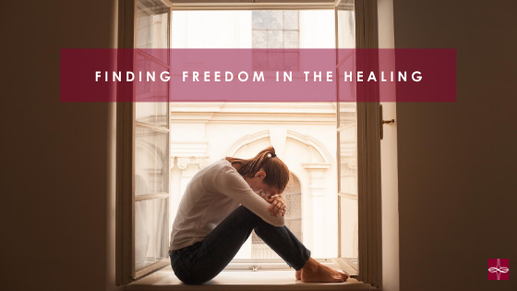

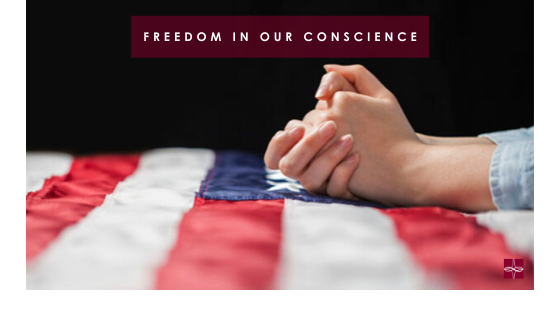

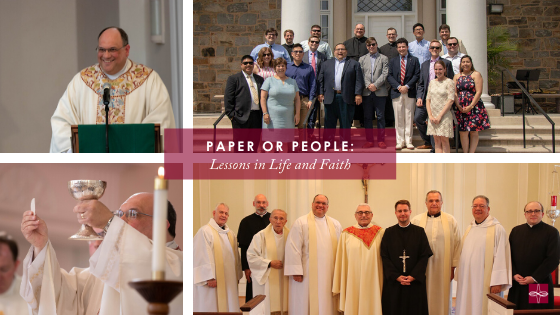
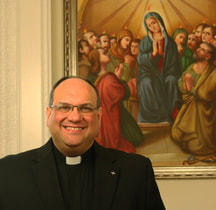
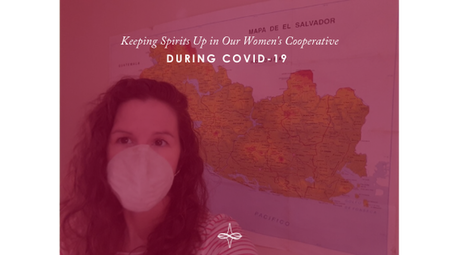

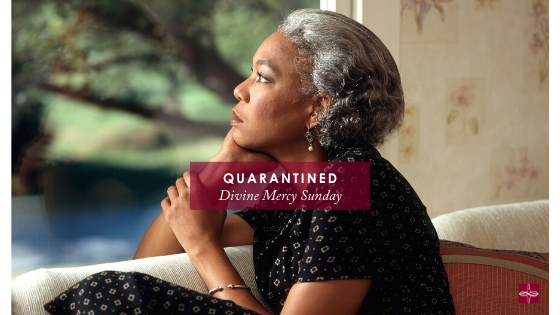

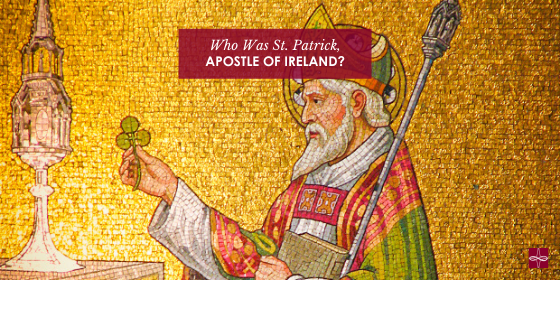

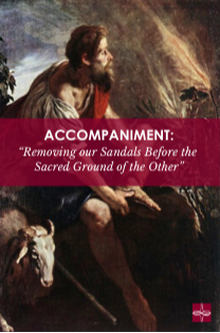
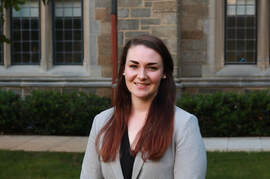
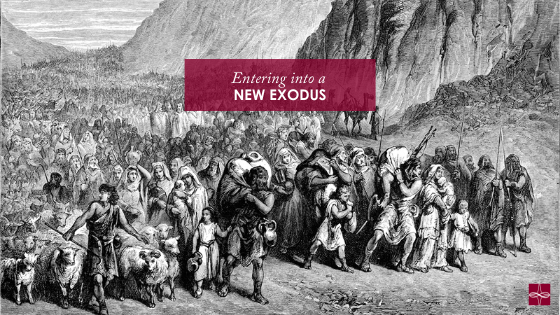
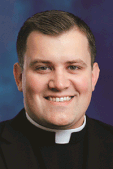
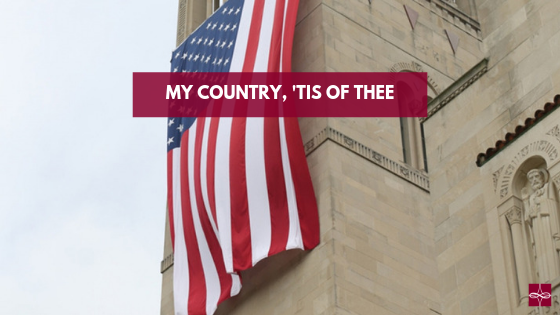

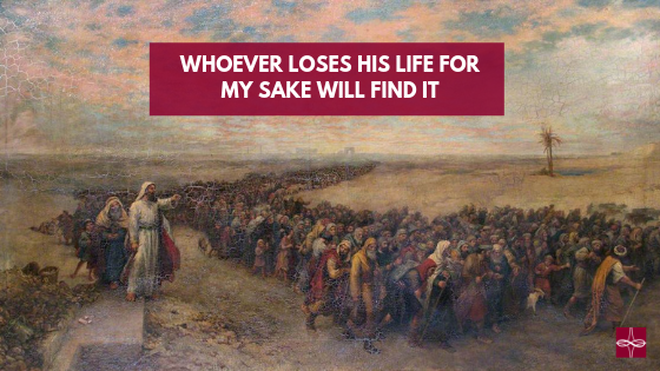
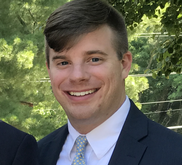
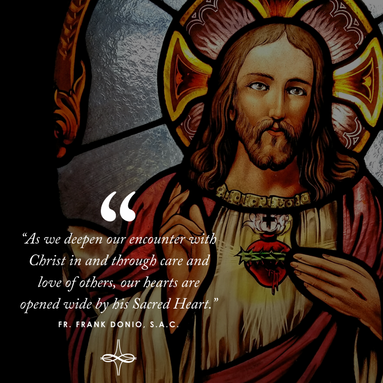
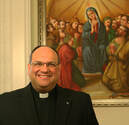
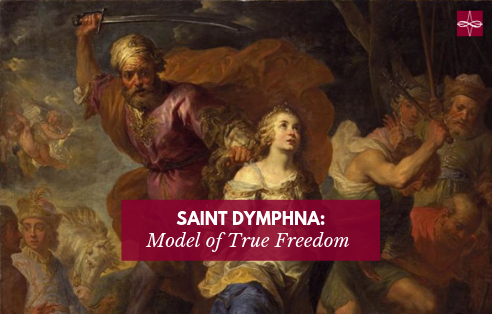
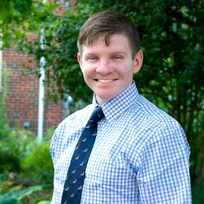
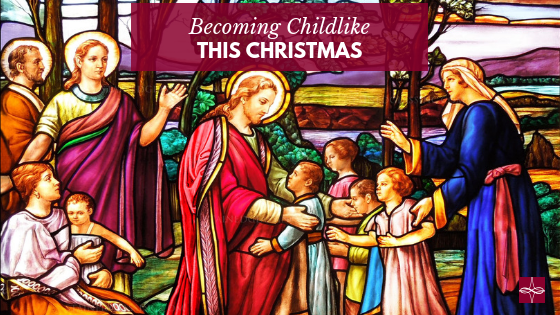

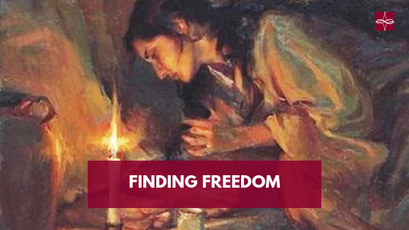

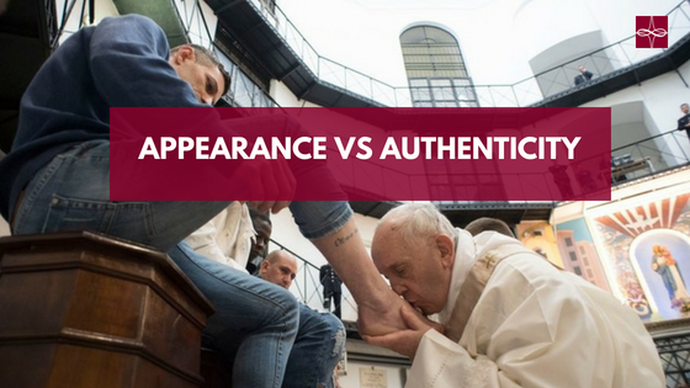

 RSS Feed
RSS Feed